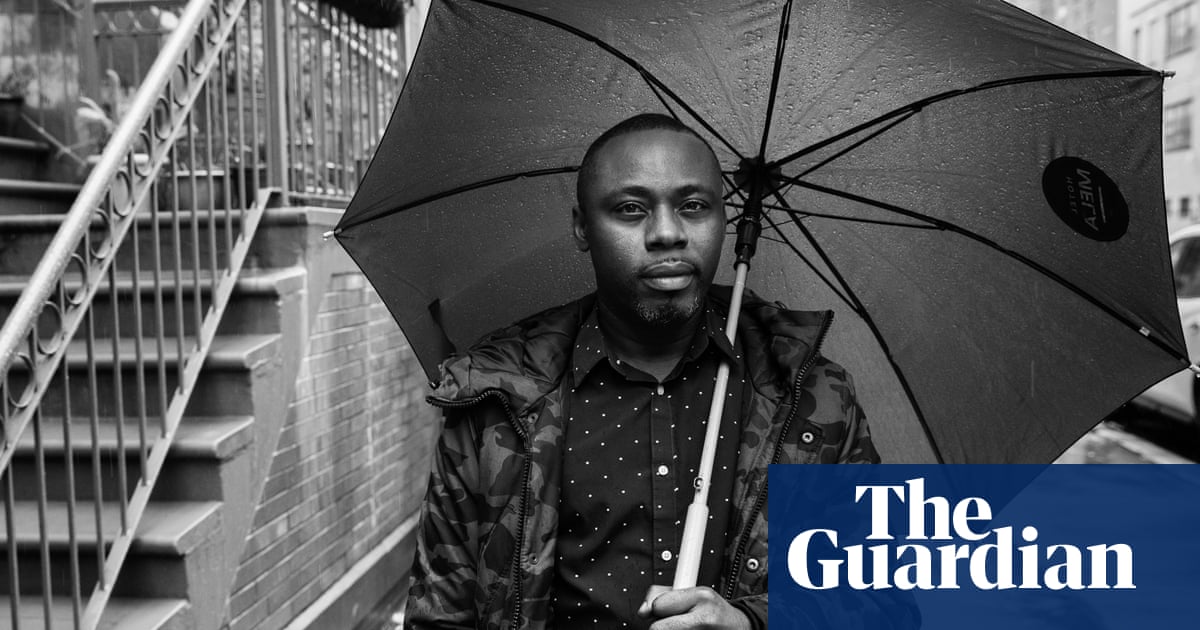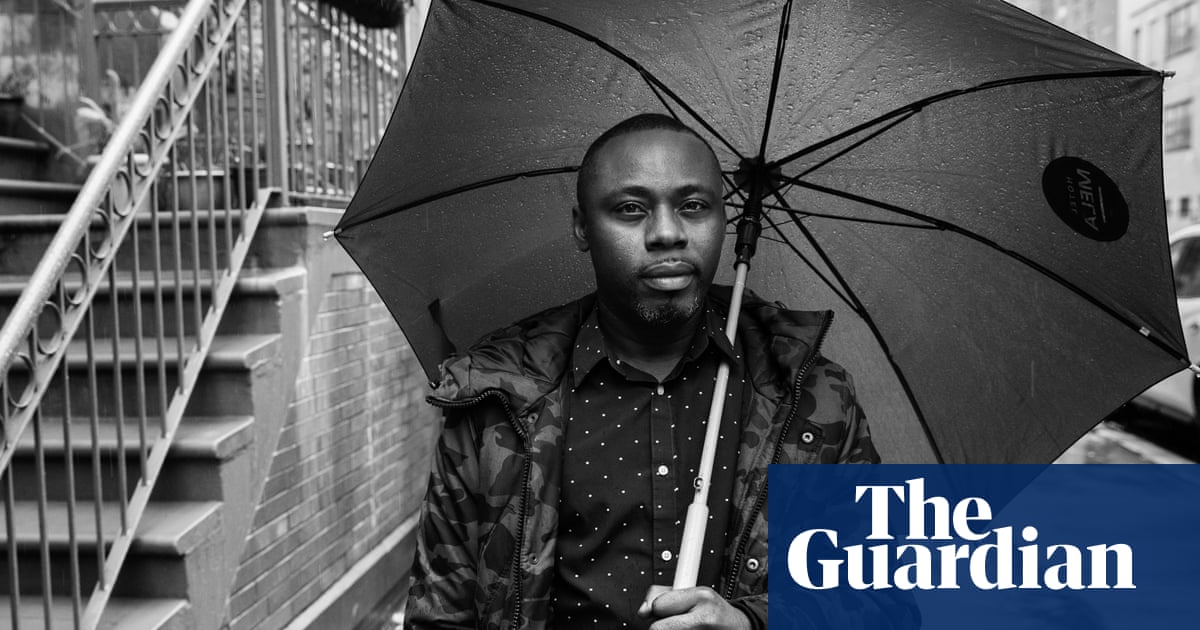As six countries are added to the list of restrictions, Nigerian and Eritreans in the US say the ban is devastating their lives

It started out as a joyous day for Olumide. On 31 January, the 32-year-old Nigerian American learned in an email that the US was finally processing the visa applications of his wife and daughter in Nigeria.
Hours later, Donald Trump shattered their celebration, announcing that he was adding six countries to the travel ban, including Nigeria. The decision cuts off pathways to permanent US residency for Nigerians, throwing Olumides case into limbo at the final stage of the process. It leaves his wife and and 11-year-old girl stuck across an ocean with little hope of making it to the US.
This is inhuman, said Olumide, a systems analyst and US military veteran who served in Afghanistan and lives in Washington DC. He asked to use his middle name out of fear he might jeopardize his case. As a soldier, I understand the need to protect the country. But to completely shut the doors its just plain wrong.
Millions of Africans now banned: We are not criminals
Trumps January order builds on the 2017 travel ban that has continued to target five Muslim-majority countries, and significantly restricts permanent residency for nationals from Eritrea, Kyrgyzstan, Nigeria and Myanmar. It also blocks people from Tanzania and Sudan from obtaining green cards through the diversity visa lottery.
Just like the 2017 restrictions, it blocks permanent immigration from the targeted countries, making limited exceptions if applicants prove that denials would cause undue hardship and that granting them visas would support national interest.
The original ban already resulted in denied visas for more than 42,000 people, the majority from Iran. The addition of the new countries has doubled the number of Muslims targeted across the globe to roughly 320 million, advocates estimate. Roughly one-quarter of all Africans are now affected.
The restrictions now apply to 13 countries, including Nigeria, home to Africas largest population and economy. It cuts off countries where some are fleeing violence. Some estimate the new ban, which goes into effect on 21 February, could hinder more than 12,000 immigrants seeking to resettle in the US and reunite with family in the next year.
The restrictions are a signature component of Trumps aggressive anti-immigrant agenda, which has included curbs on legal migration, a destruction of the American asylum system, an all-time low cap on refugees, expanded detention and mass deportations.
Trump started out by scapegoating Muslims in 2017, said Javeria Jamil, attorney with Asian Americans Advancing Justices Asian Law Caucus, who has been fielding calls from families affected by the new ban. Now, its not just the Muslim ban. It has turned into an African ban.
The Trump administration has claimed that the ban, which blindsided some diplomats, is a national security measure, and that the added countries failed to meet US security and information-sharing standards.
But immigrant rights groups said the policy is a political maneuver amid Trumps re-election campaign and one that will have profound consequences.
People are in turmoil, said Audu Kadiri, a 43-year-old community organizer who left Nigeria in 2014. He had planned to bring his mother to the US, but the ban may make that impossible. The activist, who now lives in the Bronx, hasnt yet told his mother about Trumps order, because he doesnt know how to break the news. There is so much collateral damage, its hard to quantify.
In Nigeria, Kadiri was an LGBTQ+ rights advocate who worked on HIV prevention and other human rights issues. He was forced to flee due to his activism and sought asylum in the US. Its now unsafe for him to return to Nigeria, which is why he wants his 68-year-old mother to come to the US.
He hasnt seen her since 2014 and, if Trump is re-elected, he fears it will be at least another five years before they reunite. Shell probably miss the birth of his third child.
Nigerians have contributed to the development of this country, like every immigrant community, he said. We are not criminals.

Torn apart, with dwindling options
Before the January announcement, the Trump administration had already clamped down on travel from Africa, including hikes in visa fees, and new obstacles and increased denials for Nigerians seeking approval for short-term visits. The US further suspended visitor visas from Eritrea in 2017.
That means families have been fighting for years to use the dwindling avenues available to them to reunite, and for those who have invested significant time and money into the process, the sudden news of an outright ban was particularly brutal.
Theres nothing you can do, and it makes you feel so helpless, said Olumide, the veteran. Olumide arrived in the US from Nigeria when he was 10 years old. He met his wife in Nigeria in 2012 after he left the military, and the two got married last year.
US Citizenship and Immigration Services approved the petition for his wife and daughter in January, just before the announcement of the ban. But they dont yet have their visas and the ban may make it impossible to get them.
Olumide had hoped they would be starting their lives together in the US by now, and said he was pained by feelings of guilt: I made promises to her. The couple hasnt fully processed the news, he added: We dont want to think about not being together.
He noted that his daughter has typhoid and his wife has malaria, and he constantly fears for their health and safety.
Hana Mohamed, a 20-year-old student in San Diego, who grew up in Sudan, said she was eager for her grandparents to come to the US, especially so her grandmother could get medical care in California: Its just so sad and frustrating. They are getting older, and I want to see them before anything happens.
Mohamed said it was difficult to accept that the US was banning large groups of Muslims in the name of safety while seeming to do little about the ongoing terror threat of American mass shootings: Its just so shocking that we have come to this day where a whole nation of people are getting discriminated against. Isnt the purpose of the United States to stand up for everyone who is getting hurt and treat them right?
One Eritrean American who works as an engineer in Silicon Valley, and requested anonymity for fear of hurting his familys case, has petitioned for his mother to come live with him in the US and was hoping she would soon get an interview date at the embassy. Then the new ban was unveiled.
Weve waited our turn. Weve followed the law. Im a tax-paying citizen contributing to the economy, he said, noting that his mother is 69 years old and lives alone in Eritrea. This is just pure evil.
He said he felt Trump was implementing the ban as a soundbite for the campaign while disregarding that it would leave Eritreans like his mother with no options: This was our only hope to get her here.
For Eritreans, the ban comes as as the Trump administration has ramped up deportations of Eritrean asylum seekers, despite the US governments own acknowledgment of the torture and arbitrary detention Eritreans are currently facing.
Abraham Zere, an Eritrean journalist who was granted asylum in the US and now lives in Ohio, said it seemed some Eritreans were reluctant to speak out about the ban and live in fear of potential repercussions from both governments: People are scared to even discuss it.
Zeres own family is affected: his mother is still in Eritrea, separated from her children. She cant even video chat with her family because of the poor internet in Eritrea, which means she never gets to see her granddaughter, an eight-year-old she hasnt yet met, he said.
Some warn the ban may have life-or-death consequences. For queer and transgender migrants in the targeted countries, it could lead them to embark on perilous journeys to escape to the US as they run out of options, said Zack Mohamed, who is Somali American and a member of the Black LGBTQIA+ Migrant Project: This is a big not welcome sign in front of our faces.
In response to questions about the impact on migrants fleeing violence, a US state department spokesperson said the ban was not meant to limit the ability of an individual to seek asylum, adding: Our first priority remains national security. We continue to work with our dedicated consular officers in the field to identify and expedite those individuals with urgent travel needs.
Asked about charges that the ban is discriminatory, the spokesperson said the restrictions are based on nationality and visa category and that consular officers do not adjudicate based on religion. The spokesperson said there were specific criteria to determine which countries are restricted and noted that Chad was on the original list but removed in 2018.
Fighting to end the ban
With the first travel ban upheld by the US supreme court, there are few recourses left to challenge the policy. Advocates are hoping a Democratic president will immediately repeal the ban and have also recently renewed the push for Congress to pass the No Ban Act, which would end the ban and prevent discriminatory immigration policies.
Until then, Trump will continue to use his executive power to try to redefine what it means to be a citizen, advocates warned.
The president of the United States, the US government is explicitly trying to decide who gets to be an American, said Eric Naing, who is Burmese American and works with Muslim Advocates, a group that has challenged the ban. His family would not have been able to come to the US if the ban on Myanmar had been in place. Hes saying I shouldnt be American. My parents shouldnt be American. Its deeply upsetting.
Olumide noted that the ban was punishing countless American citizens like him: Its hurting the exact people youre trying to protect.


Recent Comments